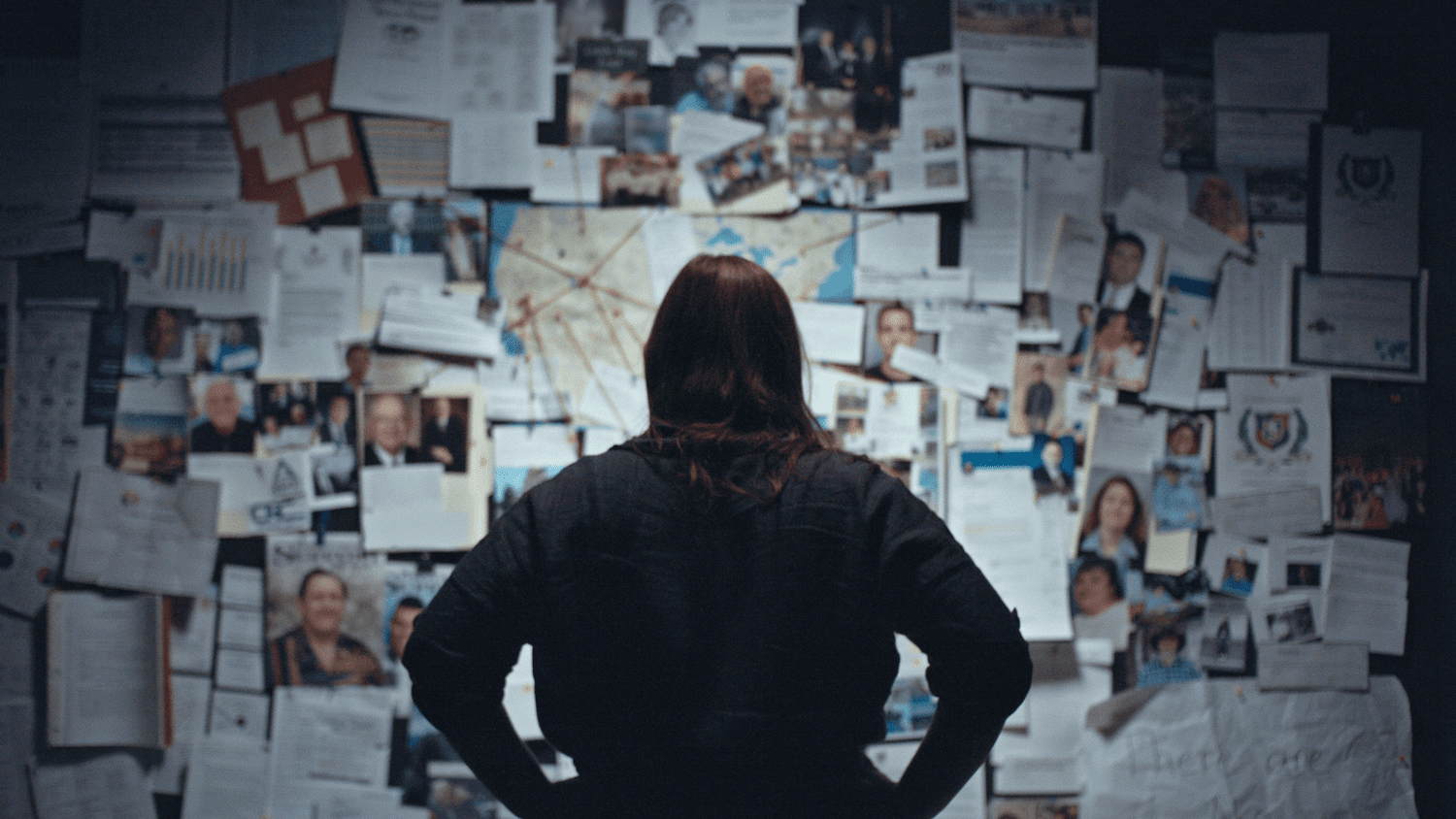
Written by Alyson Kumor
Katherine Kubler spent her childhood in front of a camera. Her father documented her first years of life on video cassettes, and likewise, Kubler began vlogging her life when she was a young girl– until her dad sent her away to a behavioral facility. Now, she uses her camera as a weapon against the institution that traumatized her as a teenager. The creator, director, and narrator behind Netflix’s new docuseries The Program: Cons, Cults, and Kidnappings bands together with her former classmates – or, more accurately, inmates – to chronicle their harrowing experience at the Academy at Ivy Ridge, a now-defunct behavior modification center in Ogdensburg, New York.
Due to a series of disruptive outbursts at school, Kubler’s father sent his 16-year-old daughter to the center against her will, where she spent 15 months enduring and witnessing unspeakable mistreatment and abuse inflicted by faculty members upon her and her fellow students. The program was marketed toward “troubled teens,” but the staff’s approach to caring for these unstable and endangered kids involved methods of unnecessarily strict rules, social isolation, humiliation, excessive physical violence, cult-like mind control techniques, and most upsettingly, a complete lack of boundaries between the staff and patients. Years after graduating from the academy, Kubler and her friends still struggle with C-PTSD (Complex Post-Traumatic Stress Disorder) as a result of the years of their youth ripped from them by their caretakers at Ivy Ridge.
Kubler’s documentary is intensely emotional, visceral, and often hard to watch. She does not shy away from relaying and depicting the most disturbing and unbelievably cruel details of the “treatment” she and her friends received. The group of courageous women have good reason for making their descriptions so explicit – their goal is to finally see the heads of the program face legal repercussions for allowing their abuse to take place behind closed doors.
One aspect of the docuseries that makes it so powerfully brutal is Kubler’s reliance on first-hand, unfettered, gruesome accounts from her former classmates about their time at the institution. For instance, her friend and fellow Ivy Ridge survivor, Diana, recounts how a facility worker once sat on her stomach, while another worker pinched her nose and held her hand over her mouth until she passed out. Two other women, Allison and Molly, recollect the excruciating eight-hour ritual they were forced to perform in order to graduate the program, which consisted of repeating the same short combination of words and hand motions over and over again without interruption. The objective of the ritual, Molly recalls, was to “push them to their breaking point,” forcing students to dissociate and release any sense of individuality.
The reason Ivy Ridge was able to prosper for so many years was because of its carefully crafted positive marketing and public image. Kubler directly dismantles the estimable reputation of Ivy Ridge by highlighting the dichotomy between the well-meaning, pleasant image that the school advertised to the public and the reality of what she and her friends experienced there. Footage of the program’s old ad reels, which deceptively showcase the institution’s few-and-far-between fun student activities, intersplices stomach-churning narratives of forced squat-and-coughs and pat-downs, along with chilling descriptions of the cult-like initiation process parents had to undergo before enrolling their children at Ivy Ridge. Kubler makes the school’s hypocrisy abundantly apparent to the viewer through this contrast.
Admirably, Kubler has somehow refused to allow her horrifying teenage years to dull her shine, which radiates throughout The Program. She imbues portions of her narration, the series’s presentation style, and her own appearances in the documentary with her bubbly, cheerful, humorous personality, making a good chunk of the three-hour saga surprisingly upbeat and optimistic. One can’t help but feel a renewed faith in the human spirit while observing the way Kubler fosters honest, supportive conversations amongst her peers about their experiences, empowering them through their abilities to be vulnerable with each other, hear and speak candidly to one another, and laugh and cry together. That word, together, encapsulates a semblance of hopeful meaning to be gleaned from the aftermath of such atrocities; this group of women has found healing in communing with one another.
Healing, while key, is not all the series aspires to bring about. Kubler’s aim is to take down the founders of Ivy Ridge for their crimes against her and her friends, and calls for a criminal investigation targeting Robert Lichfield, the institution’s founder. She makes it clear that the viewer’s investment in the corruption of teen reformation institutions should not be confined to the series itself, and that she wants to inspire audiences to take action against other Ivy Ridge-adjacent youth programs. The Program concludes with a heart-stoppingly effective call to action through Katherine’s haunting narration: “The abuse of a child is the business of anyone who knows about it. Now you know.”
Now we know. The documentary ends with the implication that the fate of abused children like Katherine is in our hands. This sense of urgency will allow The Program to stay with viewers long after the credits roll.

